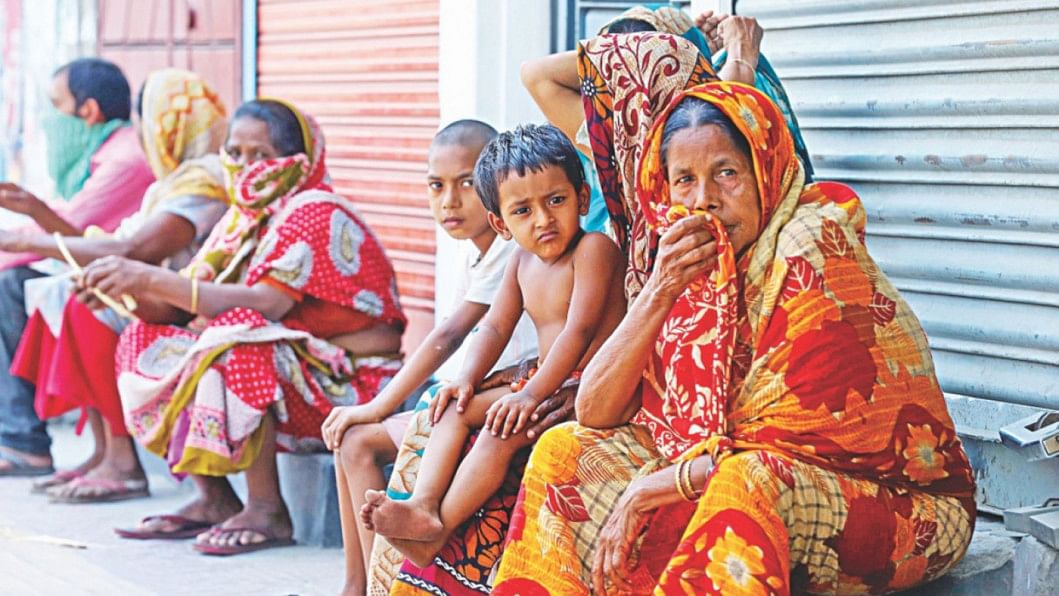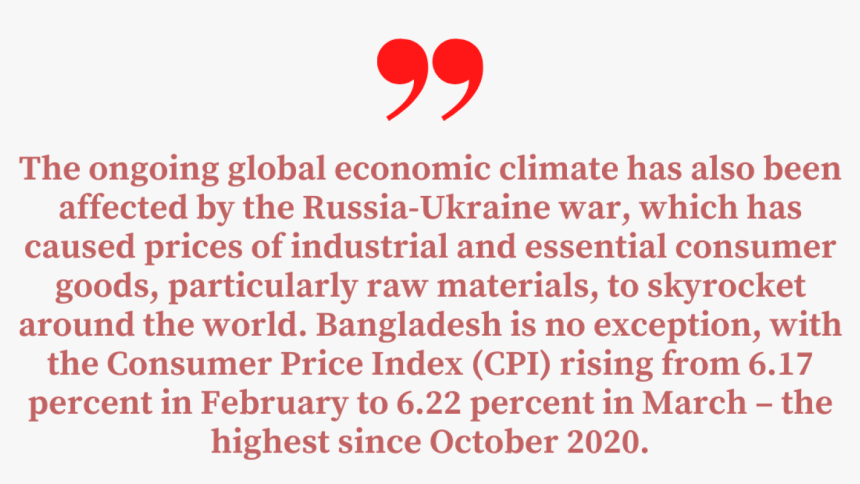Challenges to Bangladesh’s macroeconomic development

Bangladesh's success story in recent years has come as a surprise to many, particularly given that the country was uniquely born out of war and genocide a little over five decades ago. Its transition from an LDC to a developing country by 2026 marks an important step in the nation's journey to becoming a prosperous economic power. The government's ambitious goal of becoming a developed country states that it will achieve upper middle-income status by 2041. This calls for Bangladesh's politicians, business owners, bureaucrats, educators, investors, and other architects of development to recognise these growth targets to continue developing on multiple fronts. In the hunt for this goal, they will inevitably face challenges.
Despite significant progress, the country ranks 168th in the Ease of Doing Business Index out of 190 countries. Although the World Bank has cancelled the use of this index, it is imperative for understanding how Bangladesh can develop moving forward. One of the primary causes for the country's low ranking is a lack of foreign direct investment (FDI). FDI is important for transferring technology, creating employment opportunities, and enhancing a country's finance and technology sectors. In Bangladesh, FDI accounts for approximately one percent of the country's GDP. This figure can be improved by developing clarity in existing policies and increasing the trustworthiness of government officials by adhering to both national and international laws. Bureaucratic issues, infrastructure shortfalls, high tax rates, and difficulty in accessing finances all impede the ease of doing business in Bangladesh.
With the recent arrival of the fourth wave of Covid in Bangladesh, the country faces numerous recurring challenges to maintaining its growth. The priority should be to develop a strong recovery plan, which ensures that protective healthcare services are provided to safeguard the economy. The public healthcare system must be supported to deliver more accurate assessment and medical treatment to build resilience against the coronavirus. Over the last two years, the production and distribution of goods have been repeatedly disrupted. The pandemic has also exacerbated income inequality by widening the gap between the rich and poor. As a result, previous gains in expanding income opportunities and reducing poverty have been reversed. While our government revels about Bangladesh's GDP growth, it is critical to understand that GDP is not a precise metric for measuring well-being, because it does not take into account investments made towards education and health, nor does it address income inequality. Other metrics, such as the Gini coefficient, are more precise. Bangladesh's Gini coefficient is at an all-time high, indicating that inequality is also at its highest.
The ongoing global economic climate has also been affected by the Russia-Ukraine war, which has caused prices of industrial and essential consumer goods, particularly raw materials, to skyrocket around the world. Bangladesh is no exception, with the Consumer Price Index (CPI) rising from 6.17 percent in February to 6.22 percent in March – the highest since October 2020.
Matters were also made worse when Bangladesh lost the generalised system of preferences (GSP) for Bangladeshi products exported to the US, worrying many in the ready-made garment (RMG) sector. This contradicts the existing World Trade Organization (WTO) agreements, which allow developed countries to offer duty-free access to the LDCs. Had the US granted Bangladesh duty-free status in accordance with the WTO guidelines, as all other developing countries have, Bangladesh's exports to the US would have reached an estimated USD 15 billion instead of the current USD 7.3 billion, and potentially employed two more million people. Despite this, the country has made significant economic progress. Bangladesh has benefited from having GSP for their products in the EU, Australia, and Japanese markets. Negotiating preferential trade deals such as these with Latin American and Western European countries are vital to ease the transition from being an LDC to a developing country.

Migration, internal displacement, and climate change also hinder Bangladesh's economic prosperity. Climate adaptation must become a national priority moving forward, as the World Bank reports that the South Asia region will see 40 million internal climate migrants by 2050, with Bangladesh accounting for one-third of them. The displacement of Rohingyas, in particular, has placed an enormous socioeconomic burden on Bangladesh which requires urgent attention from the international community.
There are reasons to be optimistic about Bangladesh's future. However, following a long-term vision and monitoring implementation must become top priorities for our incumbent government. If we are to strive to be a better and more prosperous country, it must happen on all fronts – by improving human rights, our democratic institutions, eliminating corruption, and enforcing the rule of law.
Ahnaf Shahriar is a recent graduate at the University of Toronto and founder of Flagship Ventures, a venture capital firm in Bangladesh.

 For all latest news, follow The Daily Star's Google News channel.
For all latest news, follow The Daily Star's Google News channel. 









Comments